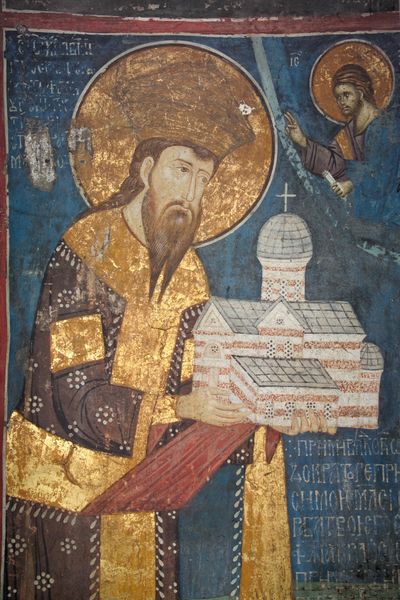ktetor on:
[Wikipedia]
[Google]
[Amazon]
 ''Ktetor'' ( el, κτήτωρ) or ''ktitor'' (; ka, ქტიტორი ''kt’it’ori''; ro, ctitor), meaning "founder", is a title given in the Middle Ages to the provider of funds for construction or reconstruction of an Eastern Orthodox
''Ktetor'' ( el, κτήτωρ) or ''ktitor'' (; ka, ქტიტორი ''kt’it’ori''; ro, ctitor), meaning "founder", is a title given in the Middle Ages to the provider of funds for construction or reconstruction of an Eastern Orthodox
 ''Ktetor'' ( el, κτήτωρ) or ''ktitor'' (; ka, ქტიტორი ''kt’it’ori''; ro, ctitor), meaning "founder", is a title given in the Middle Ages to the provider of funds for construction or reconstruction of an Eastern Orthodox
''Ktetor'' ( el, κτήτωρ) or ''ktitor'' (; ka, ქტიტორი ''kt’it’ori''; ro, ctitor), meaning "founder", is a title given in the Middle Ages to the provider of funds for construction or reconstruction of an Eastern Orthodox church
Church may refer to:
Religion
* Church (building), a building for Christian religious activities
* Church (congregation), a local congregation of a Christian denomination
* Church service, a formalized period of Christian communal worship
* Chri ...
or monastery, for the addition of icon
An icon () is a religious work of art, most commonly a painting, in the cultures of the Eastern Orthodox, Oriental Orthodox, and Catholic churches. They are not simply artworks; "an icon is a sacred image used in religious devotion". The most c ...
s, frescos, and other works of art. It was used in the Byzantine
The Byzantine Empire, also referred to as the Eastern Roman Empire or Byzantium, was the continuation of the Roman Empire primarily in its eastern provinces during Late Antiquity and the Middle Ages, when its capital city was Constantinopl ...
sphere. A Catholic
The Catholic Church, also known as the Roman Catholic Church, is the largest Christian church, with 1.3 billion baptized Catholics worldwide . It is among the world's oldest and largest international institutions, and has played a ...
equivalent of the term is "donator". At the time of founding, the ktetor often issued typika
A typikon (or ''typicon'', ''typica''; gr, , "that of the prescribed form"; Slavonic: Тvпико́нъ ''Typikonə'' or Оуставъ, ''ustavə'') is a liturgical book which contains instructions about the order of the Byzantine Rite off ...
, and was illustrated on frescoes ("ktetor portrait"). The female form is ''ktetorissa'' ( el, κτητόρισσα) or ''ktitoritsa'' ().
Sources
* * History of Eastern Orthodoxy Philanthropy Byzantine culture Greek words and phrases {{Orthodoxy-stub